Addressing Climate Change With Radical Self-sufficiency – One Community Weekly Progress Update #407
One Community supports addressing climate change with radical self-sufficiency. We think we can turn this into a world-changing viral movement by demonstrating such sufficiency as a path to a more fulfilling and luxuriant life. We’re developing everything necessary to launch teacher/demonstration hubs that will make living this way accessible globally for anyone wanting the mission of addressing climate change with radical self-sufficiency.
- Here’s our project overview
- Here’s our world-change methodology
- Here’s how this becomes self-replicating
- Here’s how we are open source and free-sharing all the do-it-yourself designs
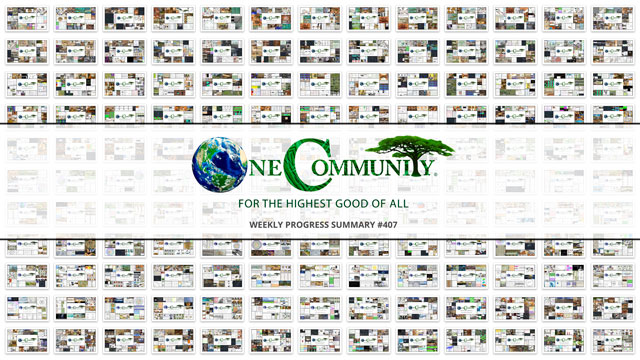
OUR MAIN OPEN SOURCE HUBS
Click on each icon to be taken to the corresponding Highest Good hub page.
One Community’s physical location will forward this movement of addressing climate change with radical self-sufficiency as the first of many self-replicating teacher/demonstration communities, villages, and cities to be built around the world. This is the January 10th, 2021 edition (#407) of our weekly progress update detailing our team’s development and accomplishments towards addressing climate change with radical self-sufficiency:
Addressing Climate Change
With Radical Self-sufficiency
One Community Progress Update #407
DONATE | COLLABORATE | HELP WITH LARGE-SCALE FUNDING
CLICK HERE IF YOU’D LIKE TO RECEIVE AN EMAIL EACH WEEK WHEN WE RELEASE A NEW UPDATE
YOU CAN ALSO JOIN US THROUGH SOCIAL MEDIA
ONE COMMUNITY WEEKLY UPDATE DETAILS
HIGHEST GOOD HOUSING PROGRESS
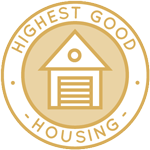 One Community is addressing climate change with radical self-sufficiency through Highest Good housing that is artistic and beautiful, more affordable, more space efficient, lasts longer, DIY buildable, and constructed with healthy and sustainable materials:
One Community is addressing climate change with radical self-sufficiency through Highest Good housing that is artistic and beautiful, more affordable, more space efficient, lasts longer, DIY buildable, and constructed with healthy and sustainable materials:
-
-
- Learn about: Our Upcoming Crowdfunding Campaign
- Learn about the different village models: 7 Sustainable Village Models
- Visit the open source portals for the first two: Earthbag Village OS Hub | Straw Bale Village OS Hub
-
This week the core team continued working on the Most Sustainable Flooring Materials staging page. This week we finished the initial draft, published it, and submitted it to the final review team. Some of the things finished this week were writing the summary section, backing up all the key reference links, using the website edition checklist to verify it followed onecommunity conventions, and fixing more formatting issues. Pictures below show some of the newly published page reflecting efforts towards addressing climate change with radical self-sufficiency.
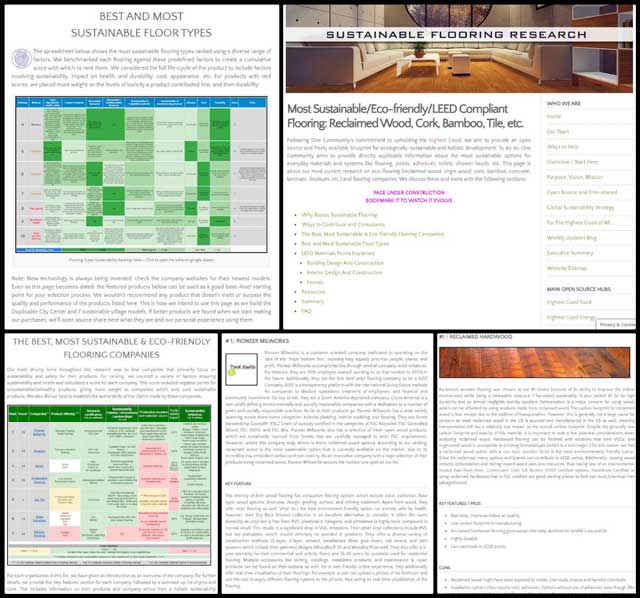
Finished the Initial Draft of Flooring Page, Published It, and Submitted It to the Final Review Team – Click to Visit
The core team also continued working on the Earthbag Village loft framing by reviewing Hannah’s designs and generating a list of questions/suggestions for improvement. Images below show some of this work reflecting efforts towards addressing climate change with radical self-sufficiency.
Dean Scholz (Architectural Designer) continued helping with the Earthbag Village (Pod 1) 4-dome cluster designs. This week was week #209 of Dean’s work and the focus was finishing appropriately sized bean bag furniture, end tables, proper placement of lamps, and starting to work on the seat cushions. See pictures below reflecting efforts towards addressing climate change with radical self-sufficiency.
This week Jose Luis Flores (Mechanical Engineer) completed his 25th week helping finish the Net-zero Bathroom component of the Earthbag Village. This week Jose Luis continued creating diagrams on AutoCAD for the Roof Access Sealing section of the Net-Zero Bathroom instructional draft. He updated the illustrations to include fasteners and their positions for the rafts used to form the frame of the roof saddle. The update included two additional diagonal cuts of the pair of rafts attached to the main central raft. The challenge of the pair of rafts was to have them sit flush along the inclined roof, along with their respective fasteners properly installed.
The finished frame was then covered by two pieces of oriented strand board on the illustrations both triangular shaped to match the two cross sections of the frame. The frame was then covered with roof paper to act as a secondary barrier in the case of a premature leak. The frame was then layered with two pieces of galvalume sheet metal cut into the shape of the cross sections with one of the pieces being cut to have a 2” overhang. The overhang was bent inwards to overlap the other piece to create a tighter seal. The panels were secured along their seams and on the bent overhang with fasteners.
With the Illustrations complete he began updating the SolidWorks rendering to include these updates and added the illustrations to the Roof Access Sealing section where he began drafting the coinciding instructions. The pictures below show some of this work reflecting efforts towards addressing climate change with radical self-sufficiency.
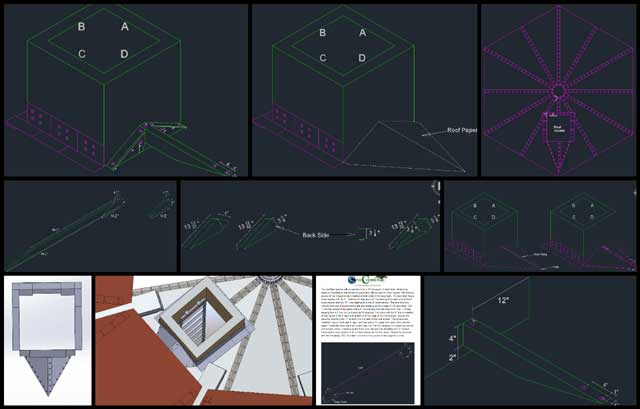
Continued Creating Diagrams on AutocCAD for the Roof Access Sealing Section of the Net-zero Bathroom Instructional Draft – Click for Page
Stacey Maillet (Graphic Designer) completed her 22nd week working on the final edits and revisions to the Murphy bed instructions. This week Stacey continued working on laying out the wood pieces for cutting and figuring out the best way to position the wood needed for each project and each piece of lumber with minimal waste. The most complicated part of the instructions has been the use of different hardware, springs and brackets. Because these items rely on open market goods and sometimes varying sizes and components, it has been hard to calculate where exactly to attach them and how.
Since these steps are being added in the last steps of the assembly, care is being taken to be as precise as possible. Stacey is also updating the component and procurement lists to be more inclusive of all parts used. Pictures below show some of this work-in-progress reflecting efforts towards addressing climate change with radical self-sufficiency.
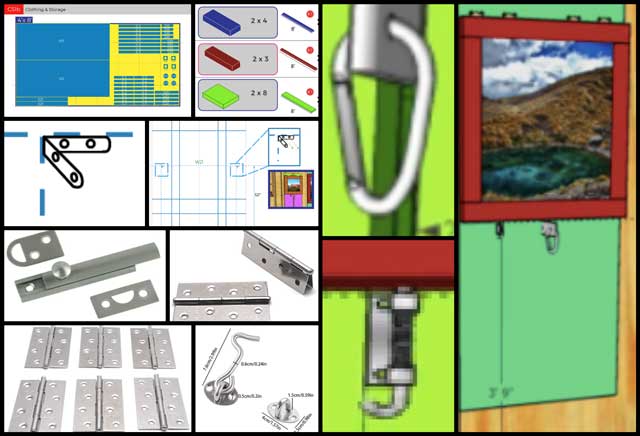
Continued Creating Diagrams on AutoCAD for the Roof Access Sealing Section of the Net-zero Bathroom Instructional Draft – Click for Furniture Page
Hannah Copeman (Structural Engineer) completed her 20th week helping complete all the Earthbag Village tutorials. This week Hannah continued the development of the Earthbag Village dome construction by creating a step-by-step process guide for the structural design of the dome loft and by continuing work on the Footer, Foundation, and Flooring documentation. Hence, contributing efforts towards the mission of addressing climate change with radical self-sufficiency.
She picked up on the floor design of the dome by updating the floor envelope in the relevant CAD, and began researching the necessity of horizontal wing insulation around the exterior of the dome. You can see some screenshots of this work below reflecting efforts towards addressing climate change with radical self-sufficiency.
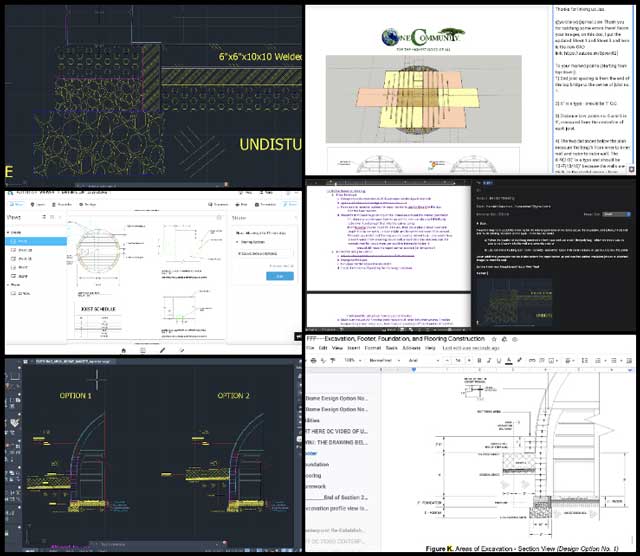
Created a Step-by-step Process Guide for the Structural Design of the Dome Loft – Click for Earthbag Village
DUPLICABLE CITY CENTER PROGRESS
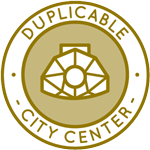 One Community is addressing climate change with radical self-sufficiency through a Duplicable and Sustainable City Center that is LEED Platinum certified/Sustainable, can feed 200 people at a time, provide laundry for over 300 people, is beautiful, spacious, and saves resources, money, and space:
One Community is addressing climate change with radical self-sufficiency through a Duplicable and Sustainable City Center that is LEED Platinum certified/Sustainable, can feed 200 people at a time, provide laundry for over 300 people, is beautiful, spacious, and saves resources, money, and space:
-
-
- Learn about this building and it’s function: Duplicable City Center Open Source Hub
-
This week Qiuheng Xu (Landscape Designer) completed her 14th week helping with the Duplicable City Center, now focused solely on the landscaping design. This week Qiuheng selected plants for the planting design based on three layers, ground layer, understory layer, and canopy layer. She also continued to digitalize the planting plan design. In addition, she found some inspirational pictures about the greenhouse. Below are some images showing her work reflecting efforts towards addressing climate change with radical self-sufficiency.
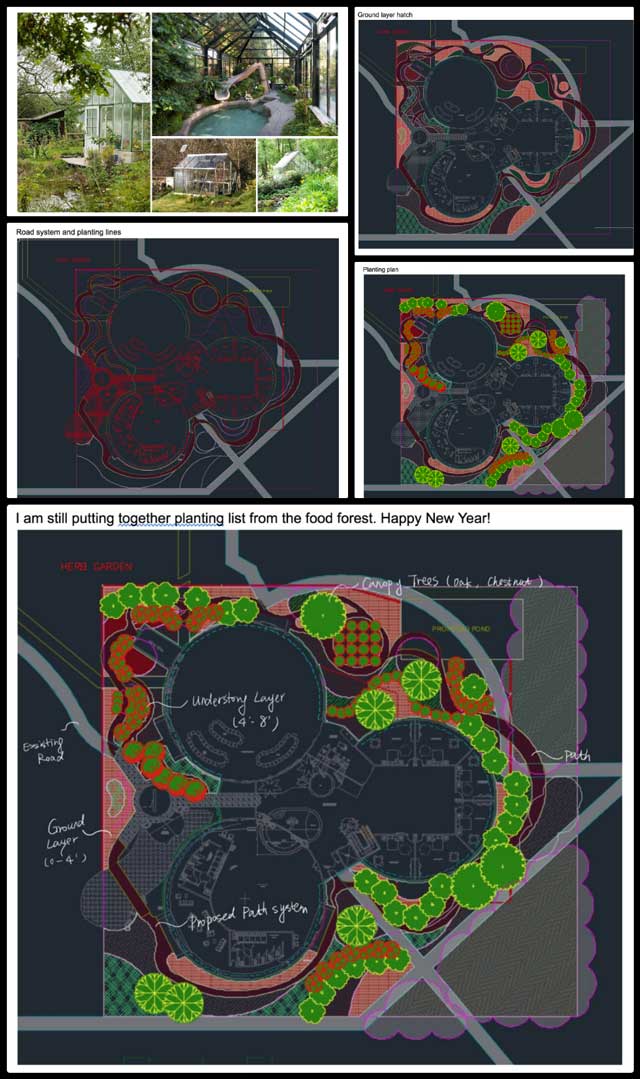
Continued Helping With the Duplicable City Center, Now Focused on the Landscaping Design – Click for Duplicable City Center
And Ian Oliver Malinay (Energy Modeler/Analyst) completed his 5th week helping run the energy analysis calculations to help us achieve LEED Platinum status for the Duplicable City Center. This week Ian processed the construction data of the model and defined the composition of the materials. He first processed the proposed building model of the project and confirmed all the data are more efficient than the ASHRAE baseline model. Progress photos below show some of this work reflecting efforts towards addressing climate change with radical self-sufficiency.
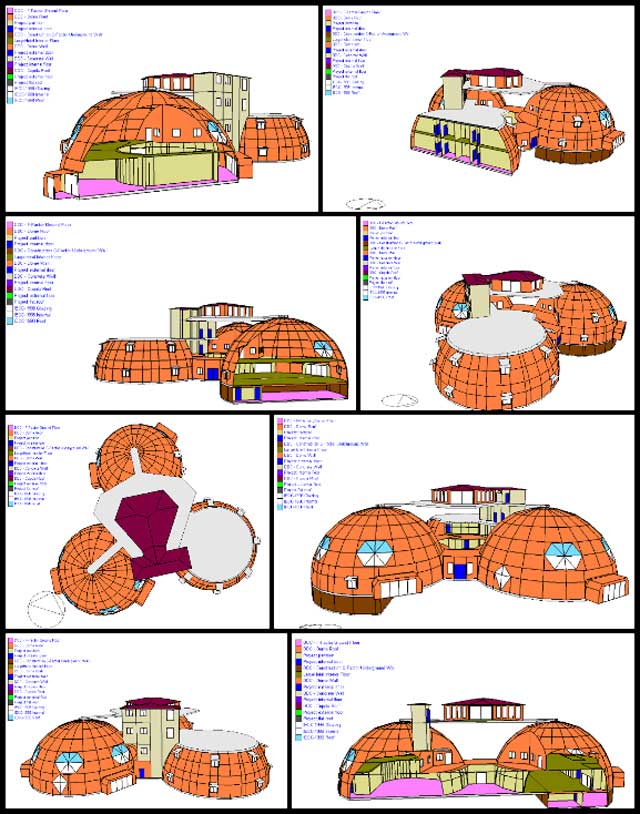
Processed the Construction Data of the Model and Defined the Composition of the Materials – Click for DCC Heating and Cooling Page
HIGHEST GOOD FOOD PROGRESS
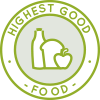 One Community is addressing climate change with radical self-sufficiency through Highest Good food that is more diverse, more nutritious, locally grown and sustainable, and part of our open source botanical garden model to support and share bio-diversity:
One Community is addressing climate change with radical self-sufficiency through Highest Good food that is more diverse, more nutritious, locally grown and sustainable, and part of our open source botanical garden model to support and share bio-diversity:
-
-
- Learn about the structures: Hoop House Hub | Aquapini & Walipini Open Source Hub
- See what we’ll be growing: Gardens & Hoop Houses | Large-scale Structures | Food Forest | TA
-
This week the core team continued rewriting/finalizing the chicken coop doc step-by-step instructions. The focus this week was construction and raising of walls. More amendments were made to drawings so they correlate with the written edits. We also did research exploring rigid rock wool insulation replacing EPS insulation and those changes were included in the latest drawing too. Pictures below show some of this work-in-progress reflecting efforts towards addressing climate change with radical self-sufficiency.
Here are some of the new graphics created too. These images are all related to the updates to the build of the west wall which has the two venting openings and entry door.
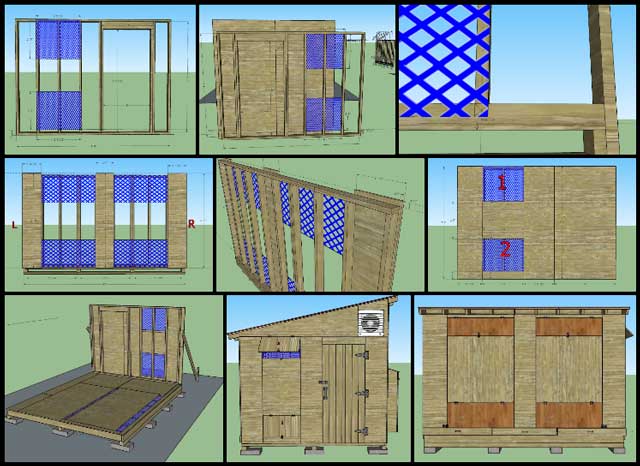
Created New Chicken Coop Graphics Related to the Updates to the Build of the West Wall – Click for Chickens Page
The core team also conversed with Paul Betty (an end user of Fastdeck 2.0) about the flooring option under consideration for the transition kitchen. Paul confirmed this flooring has the durability we seek and emphasized the need to lay out the flooring on a relatively smooth-graded surface that does not exceed 1” height variations. He also mentioned if you are moving heavy objects onto the surface do so with pneumatic-wheeled carts, no forklifts. Hence, supporting the mission of addressing climate change with radical self-sufficiency.
With his confirmation, we then integrated the floor info to the Transition Kitchen page, rebuilt it so that the Hexayurt designs are now in an “alternative design” section at the bottom, and set it up so it’s ready to add the new designs and images that will integrate this new flooring reflecting efforts towards addressing climate change with radical self-sufficiency.
Jiayu Liang (Landscape Designer) completed her 15th week helping with the Aquapini & Walipini internal and external landscaping details. This week Jiayu completed the first version of Walipini 1 and Walipini 3 and submitted the animation for feedback. She then started working on the renderings of Zenipini 1 and Zenipini 2 in Lumion. The following images show some of this latest development reflecting efforts towards addressing climate change with radical self-sufficiency.
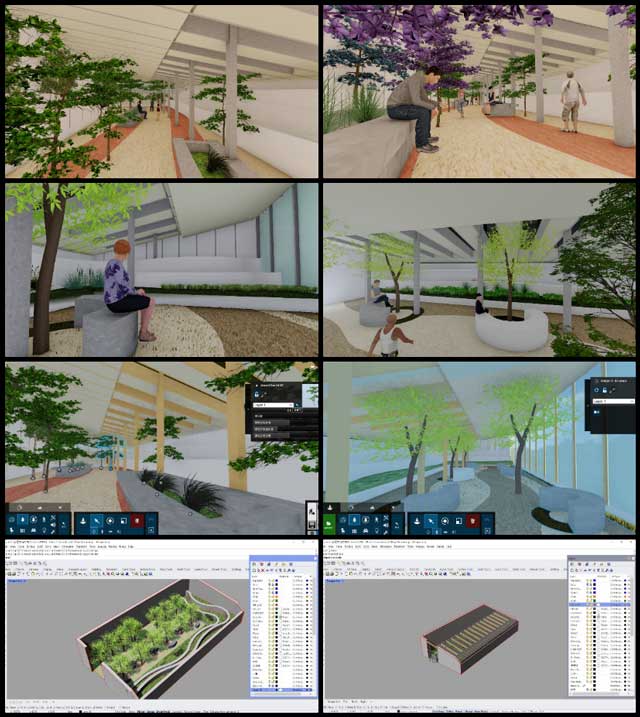
Completed the First Version of Walipini 1 and Walipini 3 and Submitted the Animation for Feedback – Click for Aquapini & Walipini Page
Henry Vennard (Mechanical Engineer) completed his 14th week helping continue the development of the climate batteries for the Aquapini/Walipini structures. In this final week of the year Henry worked on Matlab code to work out the thermal storage capability of the climate battery and therefore the effectiveness of the system in the winter months. This is critical information in order to properly size the heating system and climate battery itself.
It’s still a work-in-progress, the next step will be to combine this work and the work to find the inside air temperature for a more comprehensive model of the greenhouse. You can see some pictures related to this work below reflecting efforts towards addressing climate change with radical self-sufficiency.
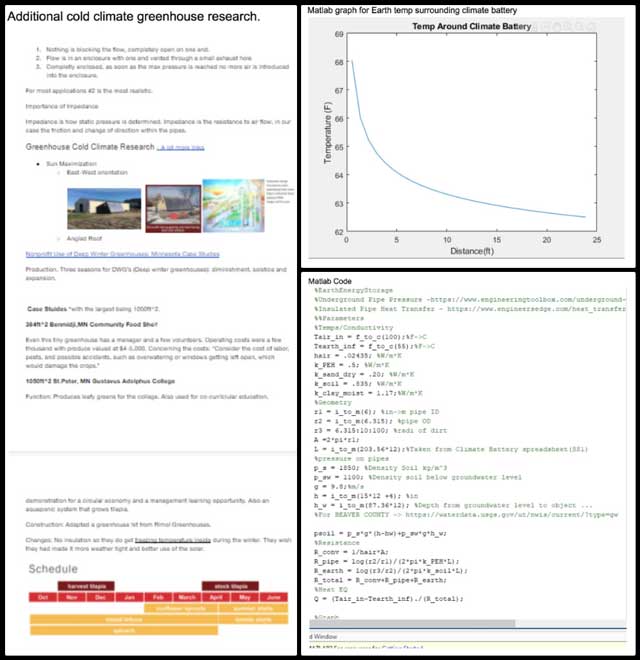
Continued the Development of the Climate Batteries for the Aquapini/walipini Structures – Click for Page
Md Amanullah Kabir (Mechanical Engineer) also continued with his 3rd week on the team, now focusing on the Aquapini/Walipini electrical layout. This week’s focus was the feasibility analysis. Pictures below show some of Md’s notes related to this reflecting efforts towards addressing climate change with radical self-sufficiency.
Haozhen “Andrew” He (Civil Design Engineer) also joined the team and completed his first week helping with the climate battery research for the Aquapini/Walipini structures. This week’s focus was finishing his orientation and setup. This included reviewing all documentation, getting SketchUp, SolidWorks, Matlab and a Matlab Github page set up, two orientation calls with team members, and beginning research on both climate batteries and greywater processing. Pictures below are related to this work reflecting efforts towards addressing climate change with radical self-sufficiency.
HIGHEST GOOD EDUCATION PROGRESS
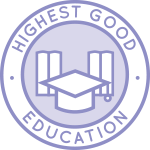 One Community is addressing climate change with radical self-sufficiency through Highest Good education that is for all ages, applicable in any environment, adaptable to individual needs, far exceeds traditional education standards, and more fun for both the teachers and the students. This component of One Community is about 95% complete with only the Open Source School Licensing and Ultimate Classroom construction and assembly details remaining to be finished. We’ll report on the final two elements to be finished as we develop them.
One Community is addressing climate change with radical self-sufficiency through Highest Good education that is for all ages, applicable in any environment, adaptable to individual needs, far exceeds traditional education standards, and more fun for both the teachers and the students. This component of One Community is about 95% complete with only the Open Source School Licensing and Ultimate Classroom construction and assembly details remaining to be finished. We’ll report on the final two elements to be finished as we develop them.
With over 8 years of work invested in the process, the sections below are all complete until we move onto the property and continue the development and open sourcing process with teachers and students – a development process that is built directly into the structure of the education program and everything else we’re creating too such as the model of addressing climate change with radical self-sufficiency:
- Program Overview: Education Open Source Hub
- How the components work together: How to use the Education for Life Program
- Lesson Plans for Life – Lesson Plans How-to
- Foundations of Outstanding Leaders, Teachers, and Communicators
- Curriculum for Life
- Teaching Strategies for Life
- Learning Tools and Toys for Life
- Evaluation and Evolution
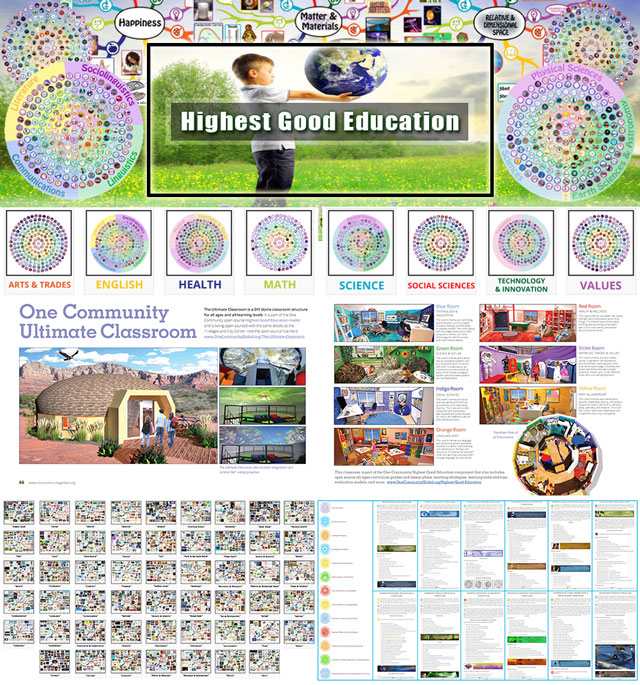
Highest Good Education: All Subjects | All Learning Levels | Any Age – Click image for the open source hub
HIGHEST GOOD SOCIETY PROGRESS
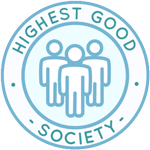 One Community is addressing climate change with radical self-sufficiency through a Highest Good society approach to living that is founded on fulfilled living, the study of meeting human needs, Community, and making a difference in the world:
One Community is addressing climate change with radical self-sufficiency through a Highest Good society approach to living that is founded on fulfilled living, the study of meeting human needs, Community, and making a difference in the world:
-
-
- Read the Highest Good society overview: Highest Good Society
- Learn about the model for fulfilled living and sharing: A Day in the Life
- Learn about the 4 economic models: RBE | For-profit | Non-profit | Entrepreneurship
- Learn about our open source community collaboration and management software: The Highest Good Network
-
This week the core team completed 23 hours managing One Community emails, social media accounts, interviewing potential new volunteer team members, and managing volunteer-work review and collaboration not mentioned elsewhere here.
The core team also completed our 4th week working on improving the content for all our Values Pages. This week we completed work on the Consensus core value page and submitted it to the final review team. Consensus FAQs were improved in terms of readability. Additional information gathered from the resources section was integrated into the body.
We then began reviewing the core value of Communication and Transparency page. Anchors have been updated, bullets have been formatted and the resources in the Resource section have been reviewed. Pictures below show some of these behind-the-scenes updates reflecting efforts towards addressing climate change with radical self-sufficiency.
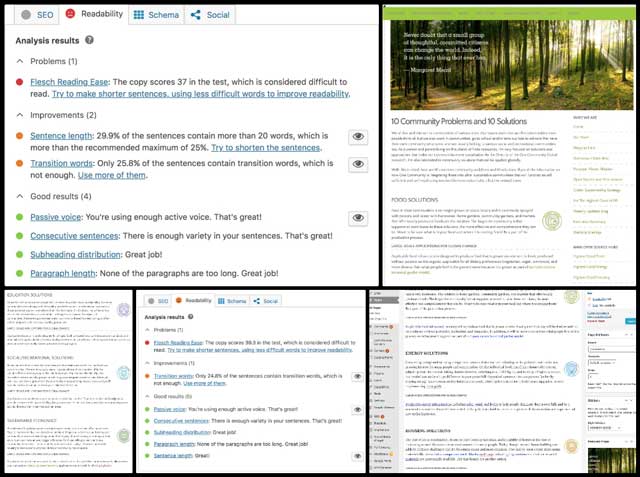
Finished Improving Content on Consensus Page and Began Communication and Transparency Page – Click for Consensus Page
And the core team improved the readability and added more content to our 10 Community Problems and 10 Solutions. This is one of the most trafficked pages of our site and the new content added specifics about the global approaches of our project for each of the 10 community areas. Pictures below show some of this work reflecting efforts towards addressing climate change with radical self-sufficiency.

Improved the Readability and Added More Content to Our 10 Community Problems and 10 Solutions – Click for Page
The core team additionally set up our www.anchor.fm/one-community account and created a tutorial so we can start publishing these weekly progress updates and bring someone on to help us publish the audio from all our past updates as podcasts to Spotify, Google Podcasts, Radio Public, Pocket Casts, and Breaker. Pictures below are related to these new developments reflecting efforts towards addressing climate change with radical self-sufficiency.
Henry Nguyen (React Developer) completed his 44th week with the team and working on the Highest Good Network software. This week Henry set the popup editor for Admin only. He also created a feature called ‘backup’ that will save the popup content to a special place in the database where it can be restored from if a person accidentally breaks something important. To back up the data, you have to press the backup button 7 times.
The purpose of this is to let the user know that what they are about to do is important, and changing the backup data should only be done if the user knows that they are saving the data to the backup memory, and this is not for testing. Pictures related to this work are below reflecting efforts towards addressing climate change with radical self-sufficiency.

Set the Popup Editor for Admin Only and Created a Feature Called ‘Backup’ – Click for Highest Good Network
Wen Zhang (Software Engineer) completed her 32nd week as a volunteer working on the Highest Good Network software. This week Wen did code review for PR #111 and PR #112. She created a table of all the badge data for editing or deleting them. She also created a form for creating a new badge. The front end workflow and layout is pretty much done for Badge management. In the coming weeks Wen will work on the React data flow and the backend to handle the requests of assign/edit/delete/create. Pictures of some of this work are below reflecting efforts towards addressing climate change with radical self-sufficiency.

Continued Working on the Highest Good Network Software; Doing Code Review for PR #111 and PR #112 – Click for Page
Noor Qureshi (Insurance Researcher) completed her 21st week helping research One Community’s insurance options. This week Noor continued to organize the different plans and coverages into a ranking system. She ranked each plan by its coverage and associated costs. Coverages at lowest costs were given a higher rank while coverages at highest costs were given a lower rank. A “middle” rank was also used. You can see some pictures related to this work below reflecting efforts towards addressing climate change with radical self-sufficiency.

Continued to Organize the Different Plans and Coverages Into a Ranking System – Click for Health Insurance Page
Jaime Arango (Graphic Designer) also completed his 15th week helping with various graphic design work for the project, continuing this week working on the new badges for the badges section on the Dashboard of the Highest Good Network. This week he worked on the 70 hours streak, 80 hours streak and the 90 hours streak badges. He also started creating the badges for the X-minimum hour group for which he created the 2x and the 3x badges. Pictures of the new badges are below reflecting efforts towards addressing climate change with radical self-sufficiency.
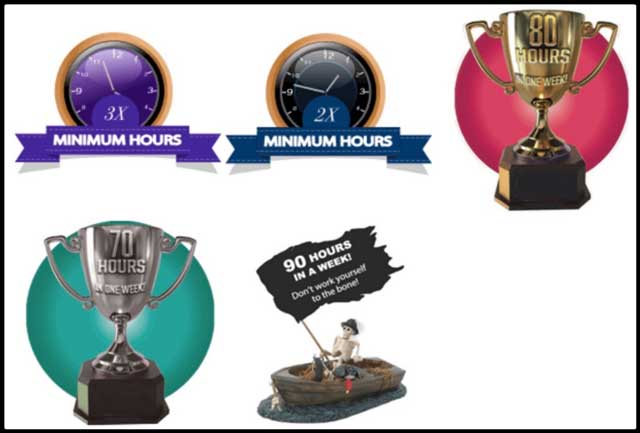
Created a 70, 80, and 90 hours streak badges for the Badges Section on the Dashboard of the Highest Good Network – Click for Page
Robert Pioch (Graphic Designer) completed his 5th week also helping with the new badges for the badges section on the Dashboard of the Highest Good Network. This week, Robert created a fun birthday badge! He also got started with the Highest Good Energy Badges. You can see pictures of the new designs developing below reflecting efforts towards addressing climate change with radical self-sufficiency.
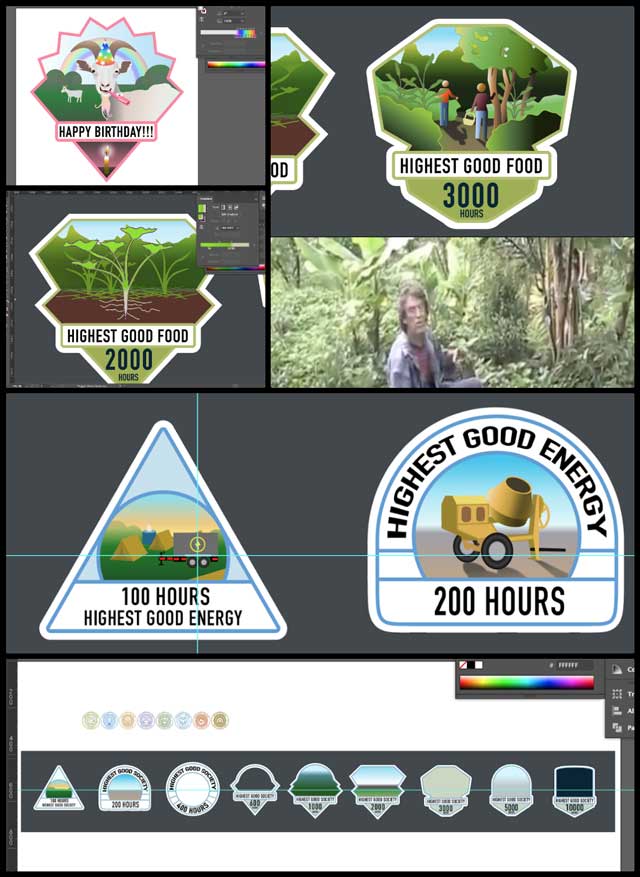
Created a Fun Birthday Badge for the Badges Section on the Dashboard of the Highest Good Network – Click for Page
AND WE PRODUCED THIS WEEKLY UPDATES BLOG – CLICK HERE TO SUBSCRIBE
FOLLOW ONE COMMUNITY’S PROGRESS (click icons for our pages)
INVESTOR PAGES
GET INVOLVED
DONATE ● WAYS ANYONE CAN HELP ● MEMBERSHIP
CLICK HERE FOR ALL PAST UPDATES
ADDRESSING CLIMATE CHANGE
WITH RADICAL SELF-SUFFICIENCY – WHAT ONE COMMUNITY IS CREATING
One Community is creating a place to grow together and change the world together. We are creating a space that helps each other live in integrity with each other and the planet as we strive to be the greatest versions of ourselves. We do this by harmoniously respecting each other, nature, and the rest of our one shared planet.
Our goal is to demonstrate what we feel is the most sustainable, healthy, and fun environment we can create by addressing climate change with radical self-sufficiency. A place based on compassion, kindness, and collaboration. This replicable community will serve as an example for what is possible such as addressing climate change with radical self-sufficiency.
Throughout our design process we are open sourcing and free-sharing everything needed for construction and replication. This includes what we call “Highest Good” approaches to food, energy, housing, education, for-profit and non-profit economics design, social architecture, fulfilled living, stewardship practices and more. We are creating these resources for implementation as individual components or complete developments called teacher/demonstration hubs. These hubs will help launch additional hubs as awareness and knowledge grow.
ADDRESSING CLIMATE CHANGE
WITH RADICAL SELF-SUFFICIENCY – BUILDING THE FIRST OF MANY
One Community will be the first teacher/demonstration hub. It will function as an experiential-learning model that facilitates mass participation to address humanity’s most pressing challenges through: A replicable model for expansion, building seven self-sufficient village/city prototypes, becoming the world leader in open-source sustainability solutions, and evolving and expanding ALL aspects of sustainable living such as addressing climate change with radical self-sufficiency.
ADDRESSING CLIMATE CHANGE
WITH RADICAL SELF-SUFFICIENCY – WHY ONE COMMUNITY IS CREATING THIS
The One Community self-replicating model of addressing climate change with radical self-sufficiency is capable of creating a sustainable planet within 30 years. We will achieve this by establishing successful teacher/demonstration hubs on every continent. Villages include designs appropriate for each of the five main types of climates. They also include options for even the most challenged economies. These hubs will collaborate with one another, share ideas, resources, and work together as a network to heal the planet. They will also transform the global lifestyle to a more enjoyable, fulfilling, healthy, and sustainable one.
The specifics of how One Community is accomplishing this mission of addressing climate change with radical self-sufficiency can be found on the One Community Solution Model to Create Solution-creating Models Page. Research supporting and showing the benefits of a model like this can be found on our Research and Resources Articles Archive.
Even if we don’t achieve our ultimate goal of global transformation through addressing climate change with radical self-sufficiency, a self-replicating teacher/demonstration model like this will take a relatively short period of time to positively affect millions while inspiring millions more. For One Community residents (the Pioneer Team), the idea of creating and sharing the social and recreational experience with visitors is also fun, exciting, fulfilling, and an additional reason why we are creating this model of addressing climate change with radical self-sufficiency.
 One Community
One Community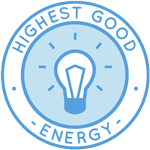
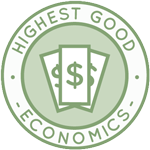
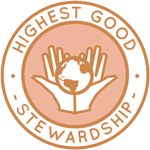
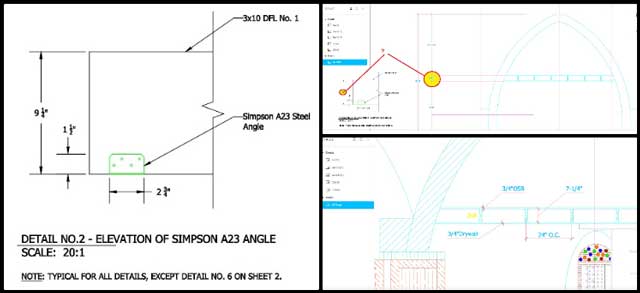
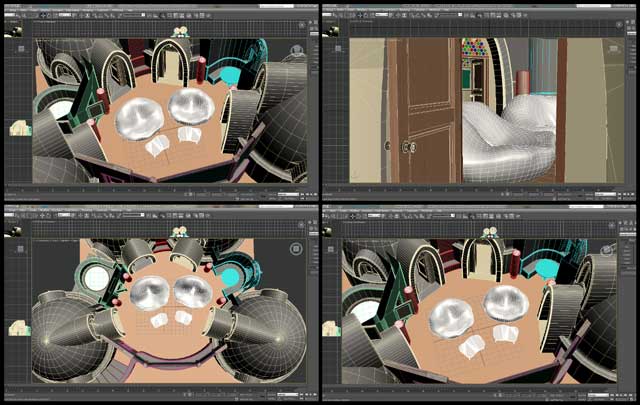
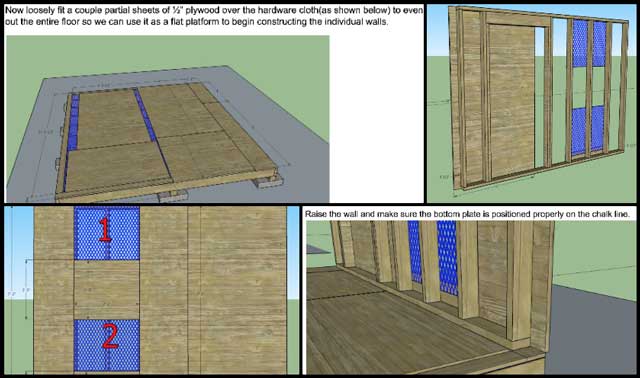
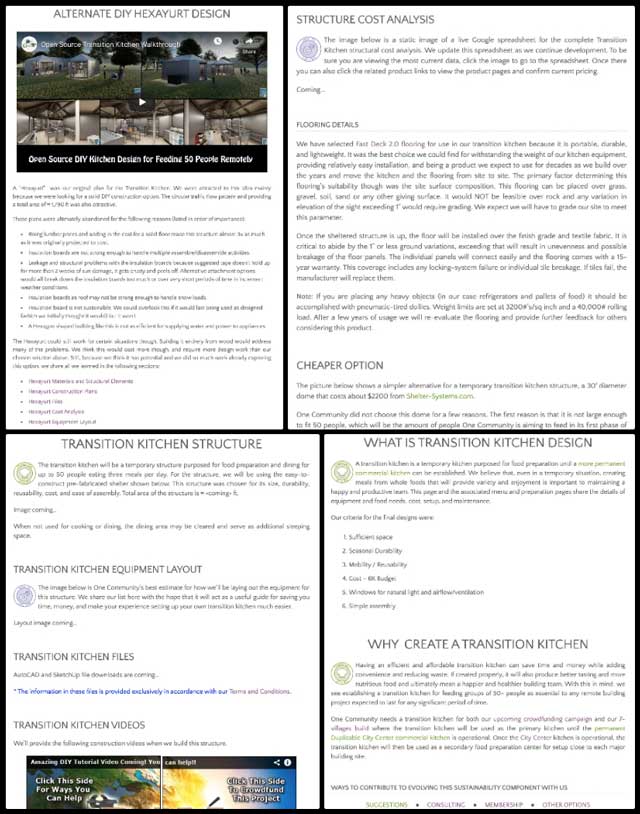

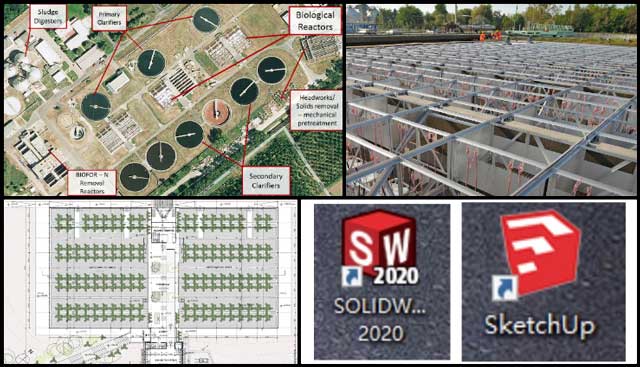
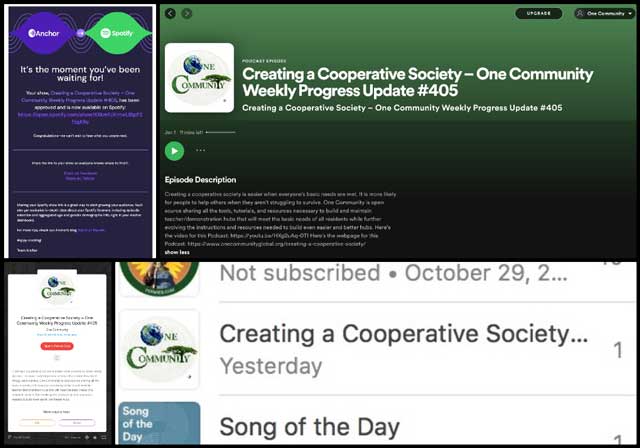



Connect with One Community